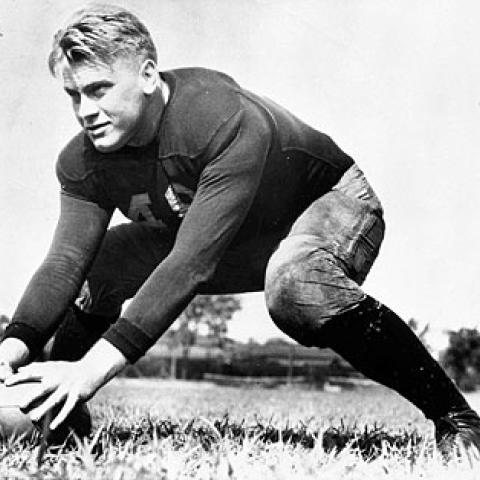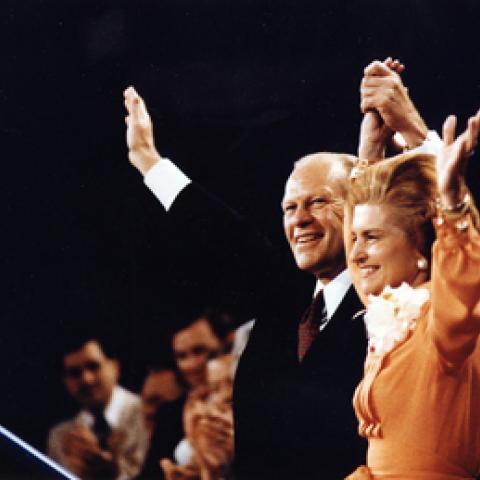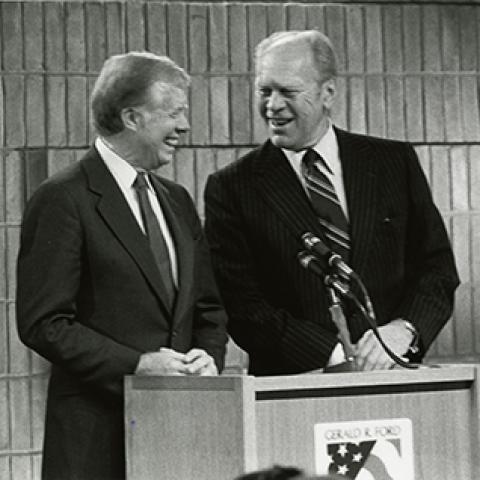
Biography
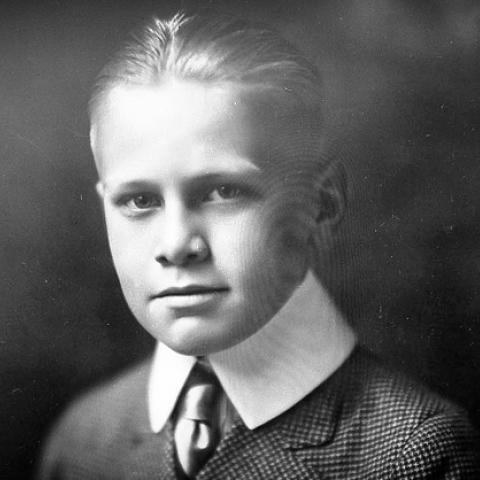
Gerald Rudolph Ford, the 38th President of the United States, was born Leslie Lynch King, Jr., the son of Leslie Lynch King and Dorothy Ayer Gardner King, on July 14, 1913, in Omaha, Nebraska.
Bibliography
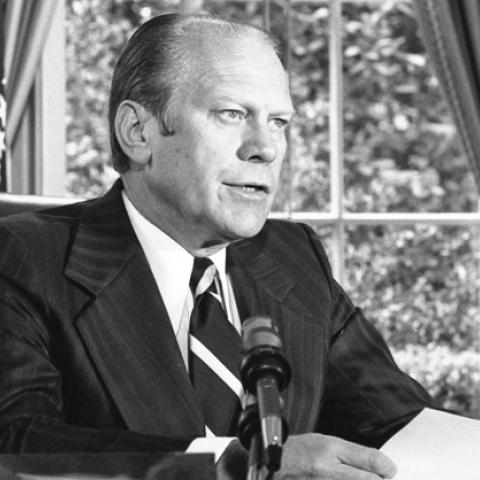
Review a selection of published biographies and memoirs concerning President Ford's career, especially his presidency.
Loading timeline: Timeline of President Ford's Life and Career
...
Learn more
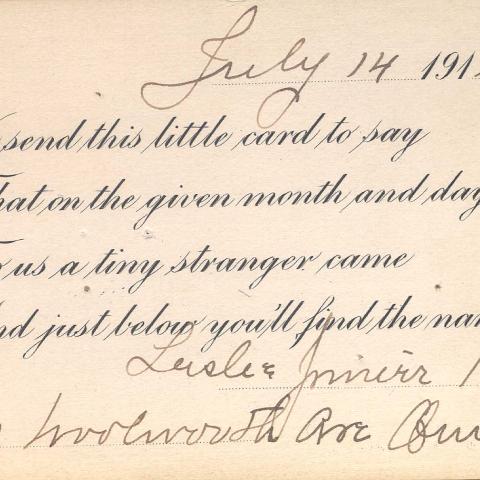
Gerald R. Ford, Jr., is Born

004500000-001.jpg
Learn more
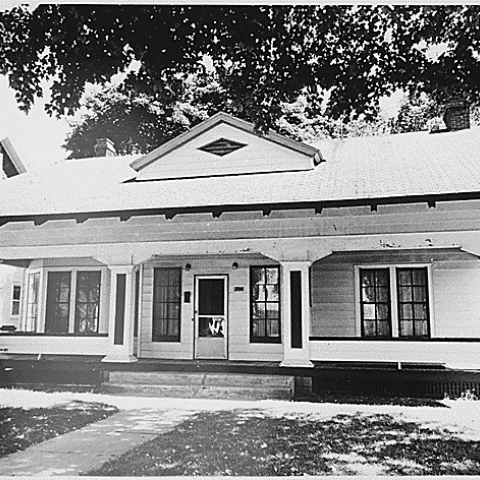
Move to Grand Rapids, MI

h31-1b.gif
Learn more
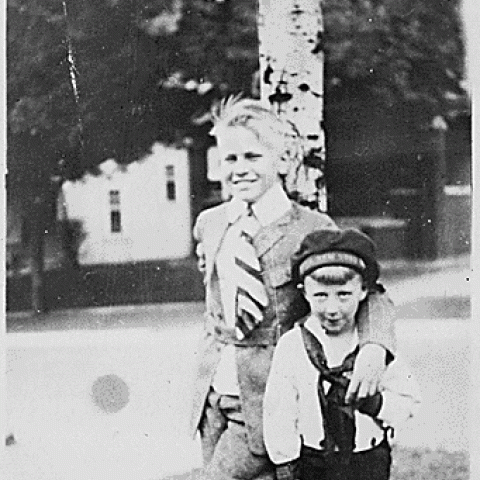
Birth of Brother Thomas

29-0485a.gif
Learn more
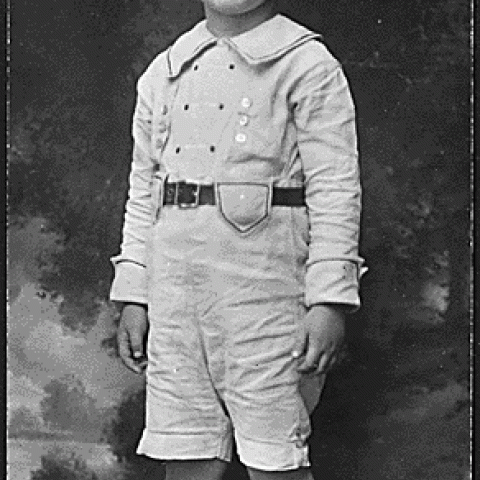
Elementary School

29-0538a.gif
Learn more
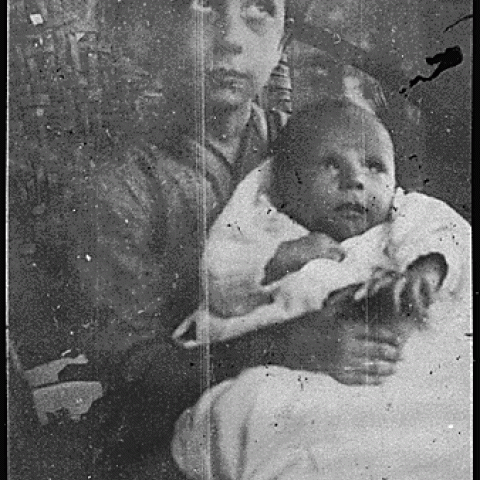
Birth of Brother Richard

Thomas Ford holds infant Richard Ford on his lap. The boys are seated on a wicker chair in front of their boyhood home at 649 Union Street, SE, Grand Rapids, Michigan.
Learn more
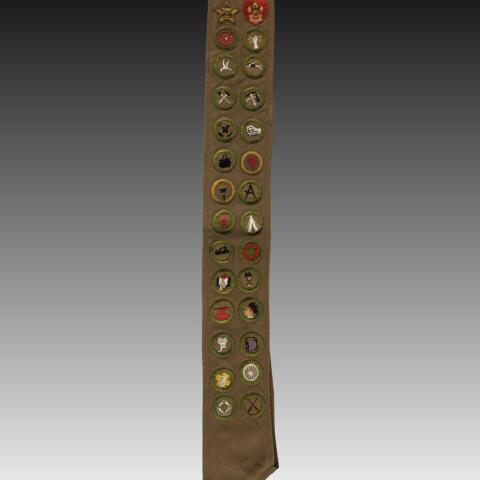
Joins the Boy Scouts of America

Boy Scouts of America Merit Badge sash owned and worn by Gerald R. Ford, Jr., as a scout. It contains 26 merit badges and two rank advancements. Dates to the 1920s.
Learn more
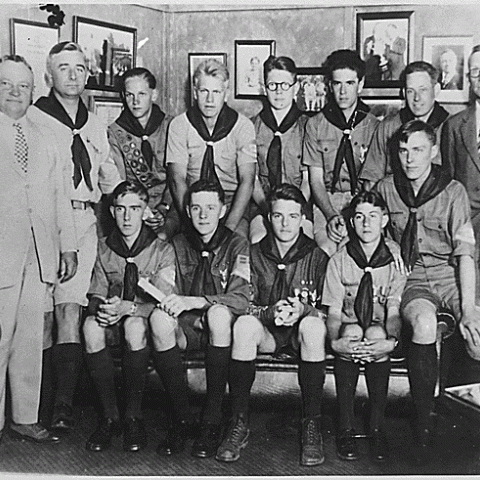
Becomes an Eagle Scout

Photograph of Gerald R. Ford, Jr., with other Eagle Scouts and Michigan Governor Fred Green, during a photo opportunity on Mackinac Island, Michigan, in August 1929.
Learn more
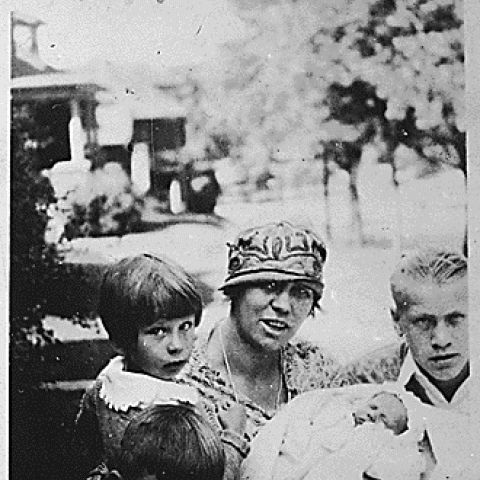
Birth of Brother James

Gerald R. Ford, Jr., with his mother Dorothy Gardner Ford and half-brothers Tom, Dick, and Jim Ford in front of their home in September 1927.
Learn more
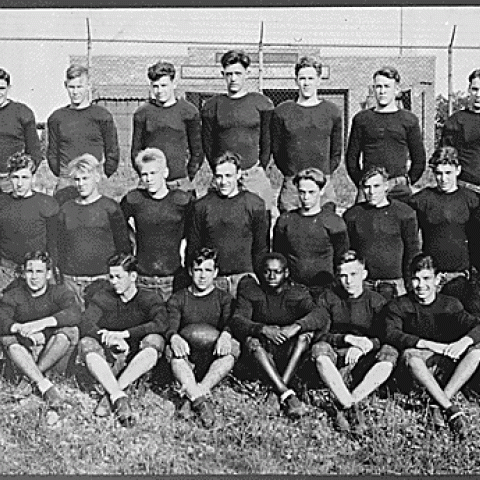
High School

Photograph of Grand Rapids' South High School 1930 football team. Gerald R. Ford, Jr., is in the second row, fifth in from left.
Learn more
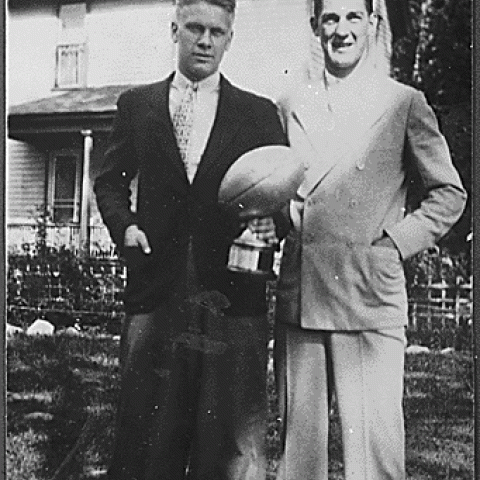
Enters college at the University of Michigan

Ford poses with his University of Michigan Football Teammate Herman Everhardus, holding a trophy he was awarded for for being the best freshman in the University of Michigan's 1932 spring football practice.
Learn more
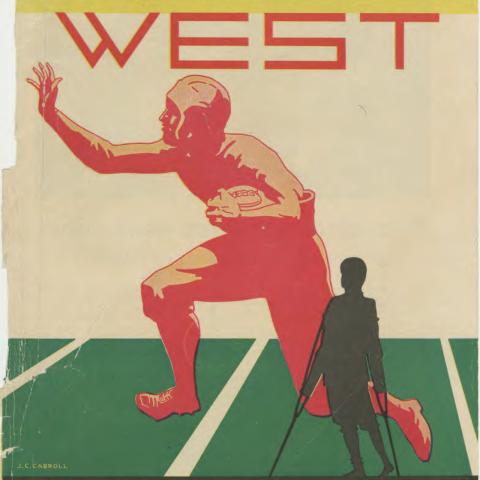
Plays in the East-West College All-Star Game

tumblr_pk045nsBwQ1sxqnuko1_1280.jpg
Learn more
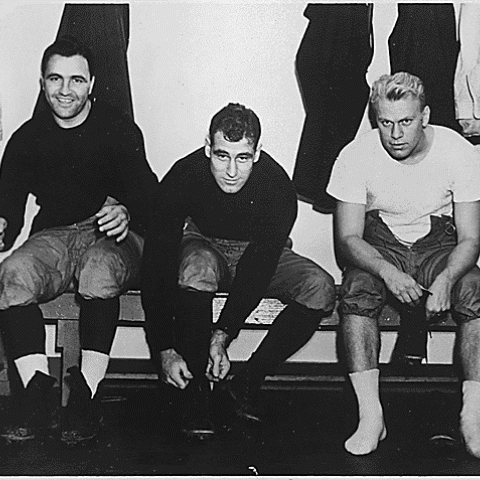
Move to New Haven, Connecticut

Photograph of Gerald R. Ford, Jr. and his fellow football Coaches getting Ready for practice at Yale University (Ford pictured far right)
Learn more
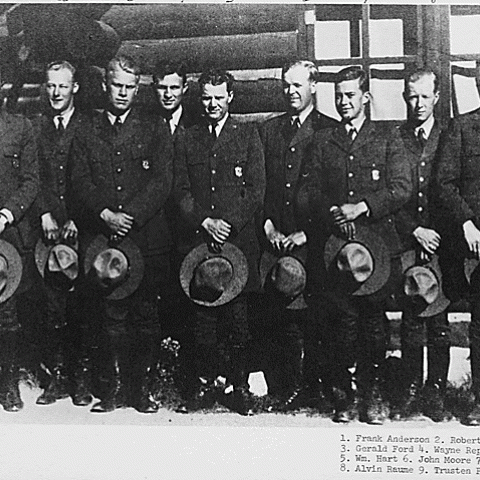
Yellowstone Park Ranger

Photograph of Gerald R. Ford, Jr., with Fellow Rangers at Canyon Station, Yellowstone National Park, in 1936. From left to right: Frank Anderson, Robert Jennison, Ford, Wayne Replogle, William Hart, John Moore, John Thune, Alvin Raume, and Trusten Peery
Learn more
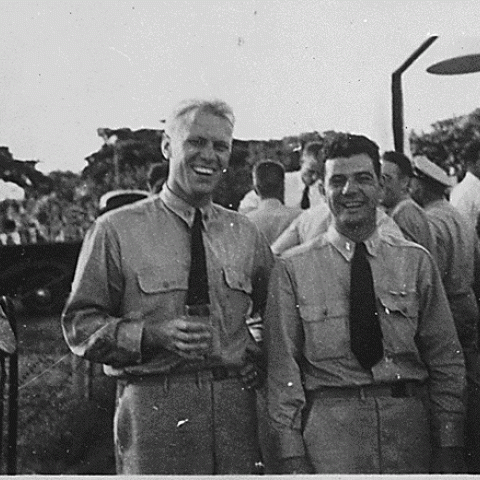
USS Monterey

Ford (left, holding a glass) poses with a naval officer at a farewell party for Air Group Thirty at the Ford Island Tennis Club, Pearl Harbor, Hawaii.
Learn more
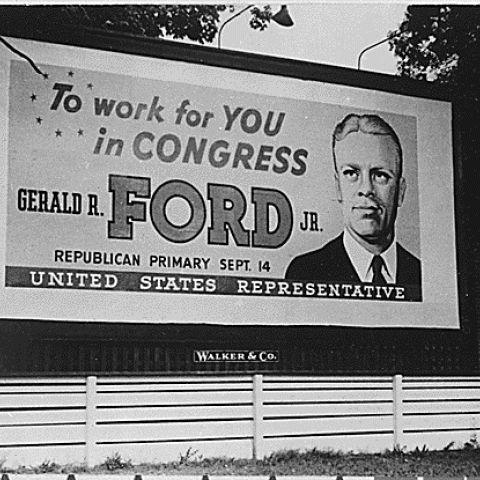
Congressional Campaign

Photograph of a Billboard for Congressional Candidate Gerald R. Ford, Jr.'s Republican Primary Campaign
Learn more
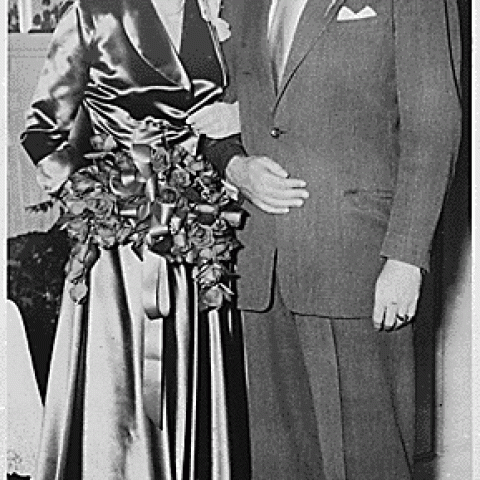
Gerald R. Ford and Betty Bloomer Warren marry

Mr. and Mrs. Gerald R. Ford in front of the Ambo in Grace Episcopal Church in Grand Rapids, MI, following their marriage.
Learn more
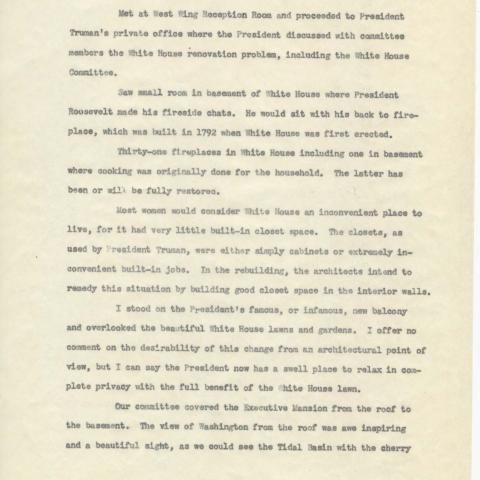
Sworn into Congressional office

005403167-001_Page_1.jpg
Learn more
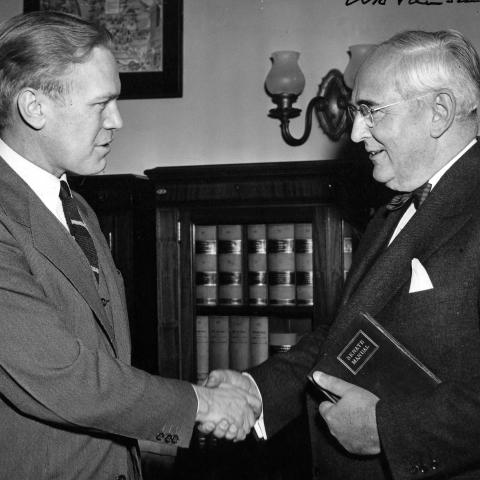
Second Term

AV82-31-0008.jpg
Learn more
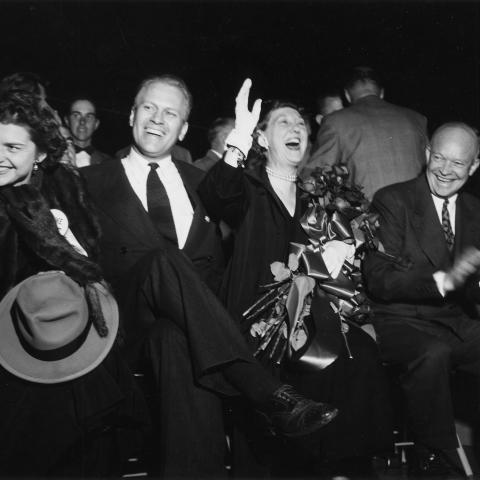
Ford endorses General Dwight D. Eisenhower for the Presidential race.

AV82-31-22.jpg
Learn more
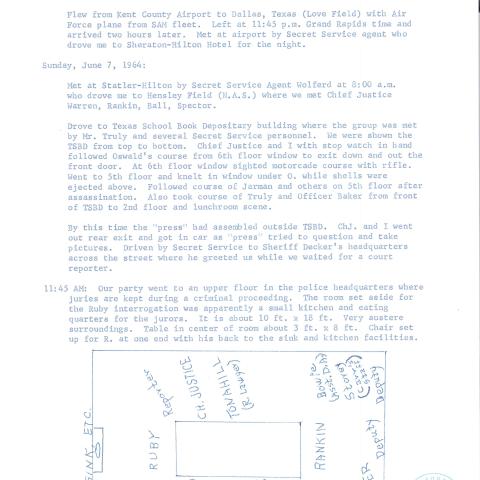
Warren Commission Report

005400386-001_Page_1.jpg
Learn more
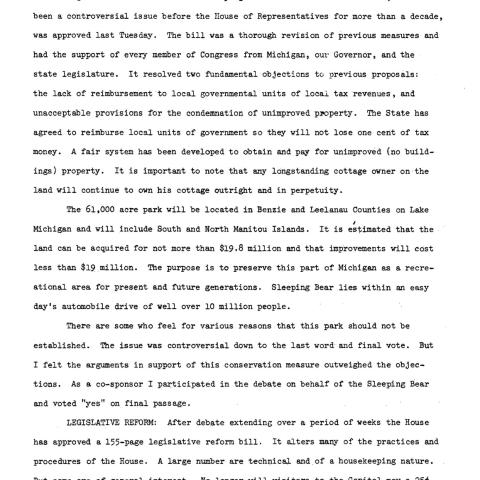
Sleeping Bear Dunes National Lakeshore: Legislation passed

tumblr_pzhh9viVSS1sxqnuko1_1280.jpg
Learn more
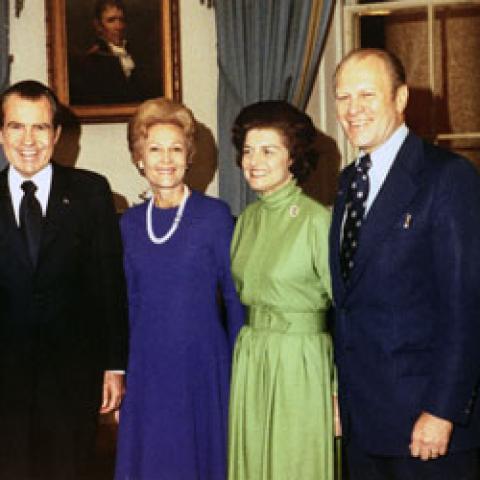
Vice President Nomination

H0033-1.jpg
Learn more
Sworn-in as Vice President
Learn more
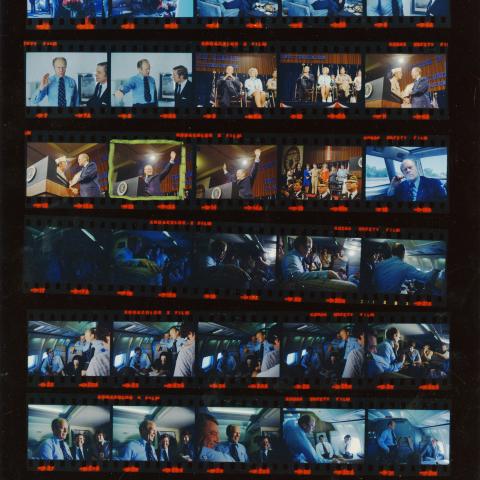
Veterans of Foreign Wars Convention

President Gerlad Ford, waving from the podium
Learn more
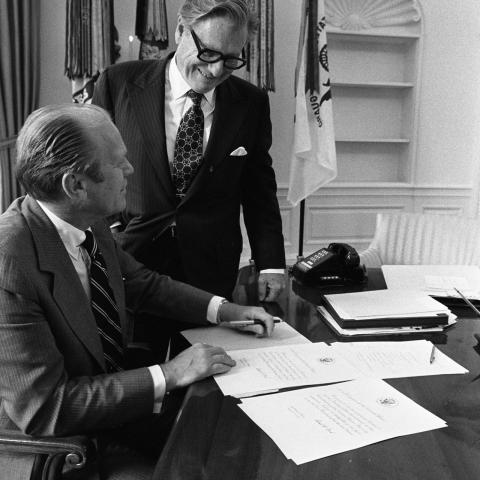
Nomination of Rockefeller

tumblr_pwjf6207S41sxqnuko1_1280.jpg
Learn more
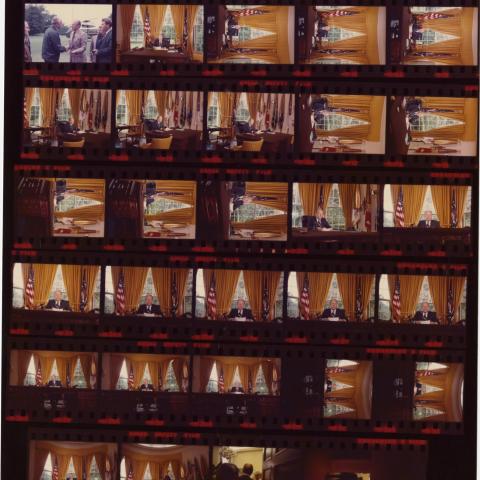
Nixon Pardon

A0620_NLGRF.jpg
Learn more

Whip Inflation Now

1983.92.jpg
Learn more
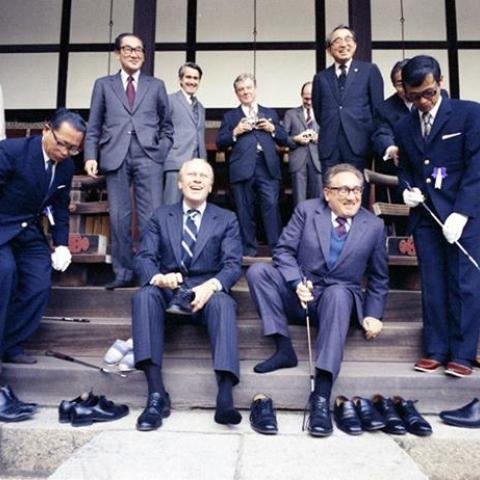
Trip to Japan

tumblr_mwmg7dSOA31qjih96o1_1280.jpg
Learn more
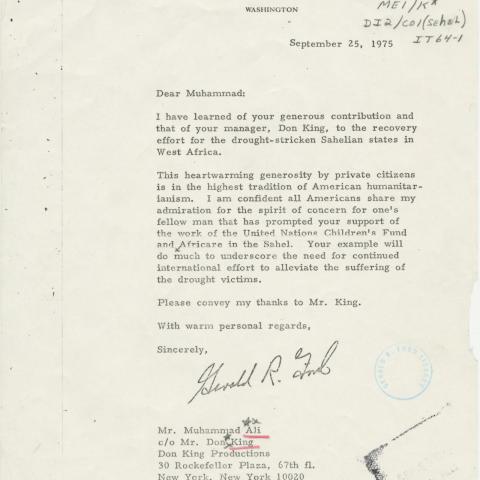
Muhammad Ali visits the Oval Office

tumblr_oaqhd6iLIZ1sxqnuko2_r1_1280.jpg
Learn more
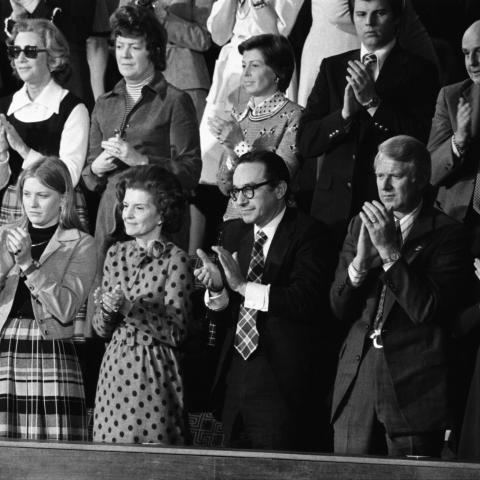
First State of the Union Address

38-whpo-a2789-14a.jpg
Learn more
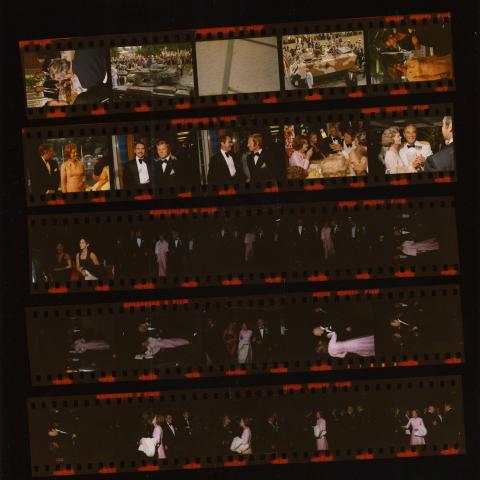
Visit to West Germany

A5799_NLGRF.jpg
Learn more
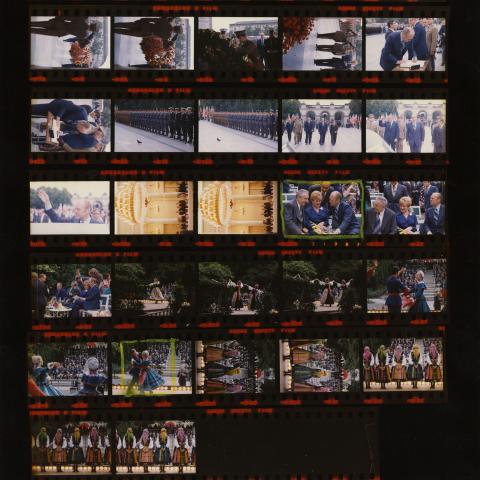
Visit to Poland

President Ford at a wreath laying ceremony at the tomb of the unkown solider in Poland
Learn more
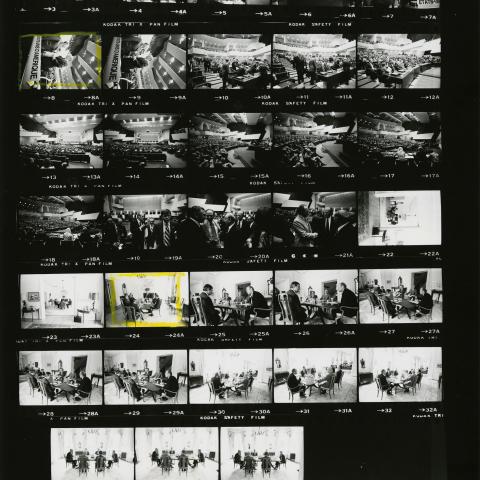
Helsinki Accords

President Ford before the CSCE.
Learn more
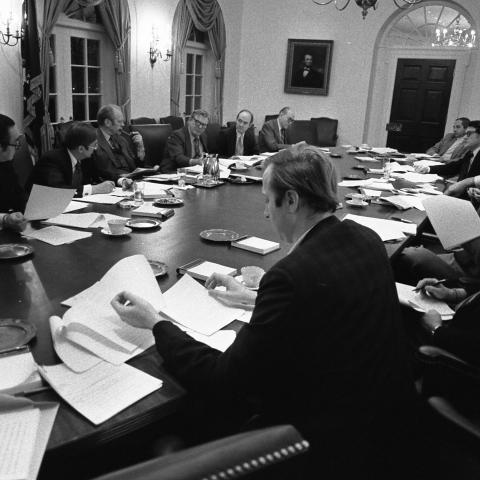
Second State of the Union Address

A7923-23.jpg
Learn more
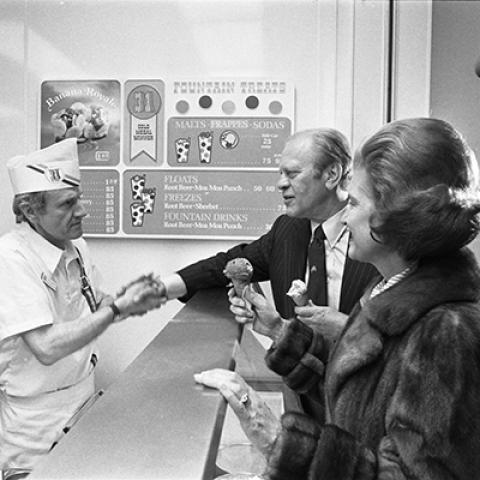
New Hampshire Republican Primary

President Ford and Mrs. Ford eating Ice Cream in Portsmouth New Hampshire
Learn more
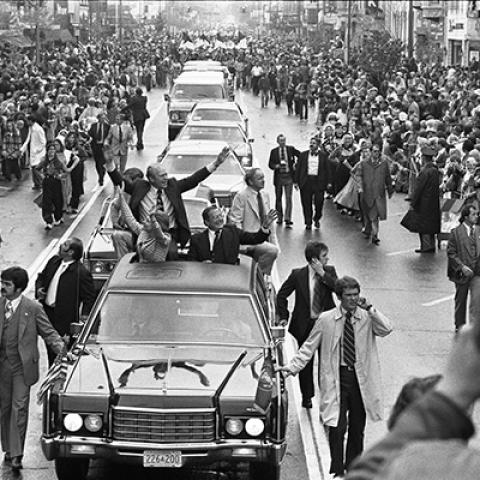
Train Campaign

President Ford and Betty Ford at the 47th annual tulip festival in Holland Michigan
Learn more
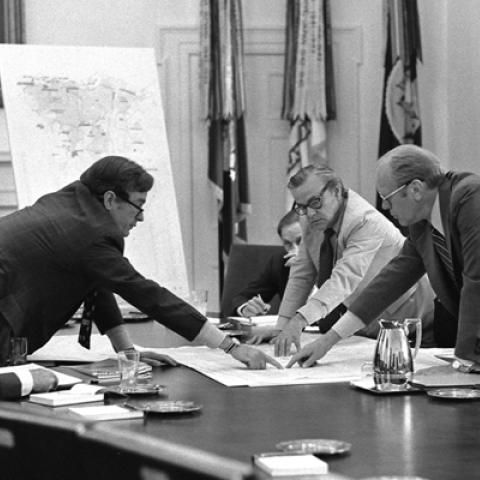
U.S. Embassy in Beirut

President Ford meets with National Security Council to discuss evacuations of Americans currently in Bieruit
Learn more
Bicentennial
Learn more
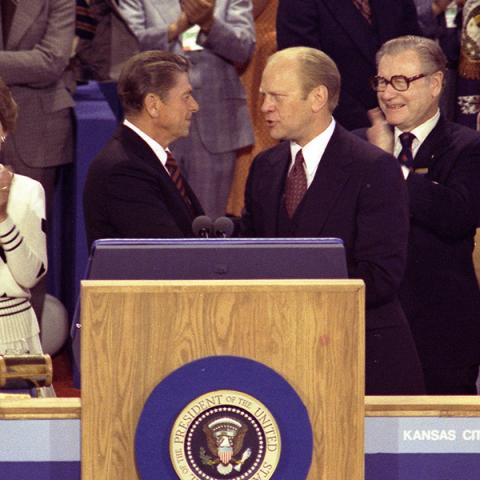
Republican National Convention

President Ford shakes the hand of Ronald Regan. Also shown in the photo is Vice President Rockefeller and 1976 Vice President Canidate Bod Dole
Learn more
First Presidential Debate
Learn more

"A Time to Heal"

A Time to Heal (book cover)
Learn more
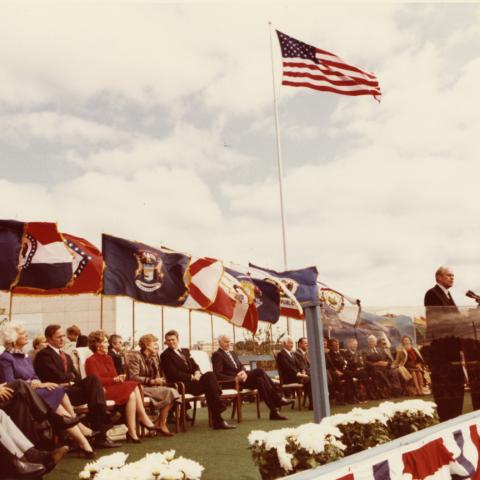
Dedication of the Gerald R. Ford Presidential Museum

90b706c75083ebbdea46865c220d0b1a55b6d2e4.jpg
Learn more
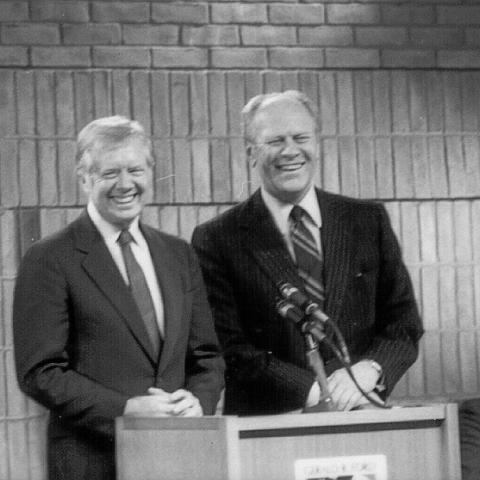
All-Democracies Conference

5341118148_87b41923d6_z.jpg
Learn more
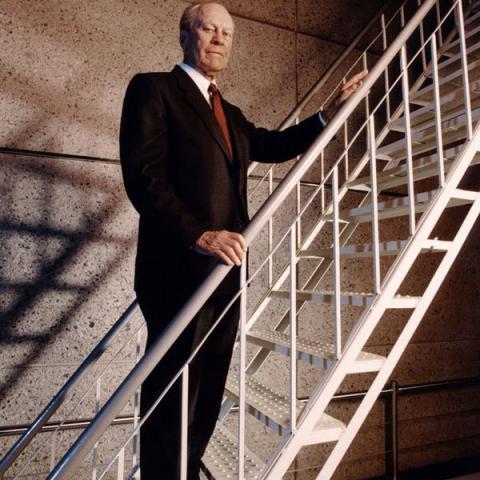
Gerald Ford attends the opening of the Saigon Staircase Exhibit at the Gerald Ford Museum in Grand Rapids.

74e16171e33661ba7612e0e53cb4407d3ee0fafe.jpg
Learn more
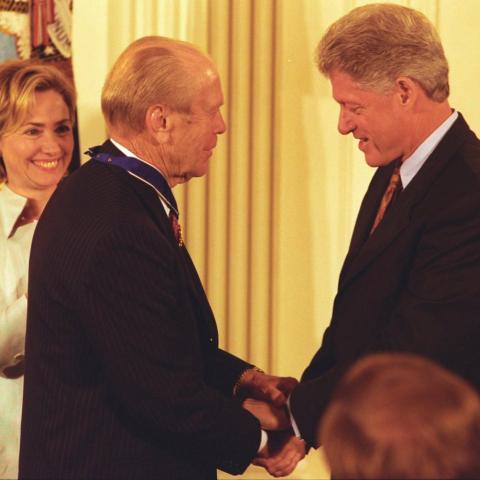
Presidential Medal of Freedom

tumblr_mtfhe17Jxm1qjih96o1_1280.jpg
Learn more
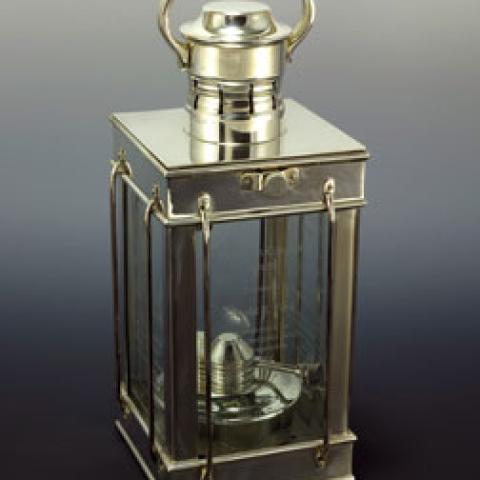
Profile in Courage Award

JFKAward2005.jpg
Learn more
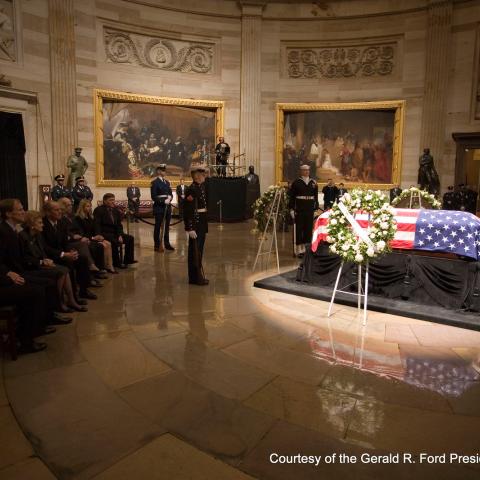
Funeral in Washington, D.C

5339630650_833cef4ad0_h.jpg
Learn more
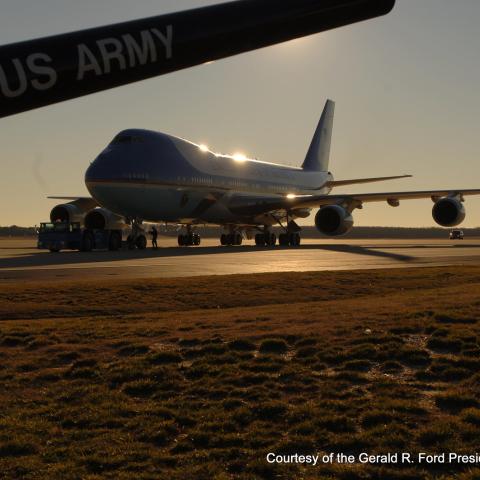
Funeral in Grand Rapids, Michigan

5339069233_a98f71217f_h.jpg
Photographs
Quotes
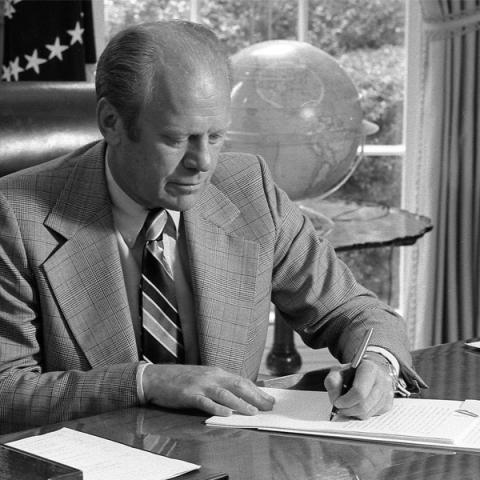
The Library has compiled a list of President Ford's most notable quotes.
